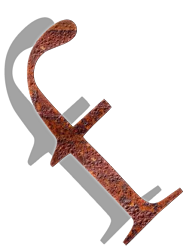LANGUAGE TEACHING THROUGH A COMPLEX APPROACH IN TIMES OF PANDEMIC: BREAKING PARADIGMS
DOI:
https://doi.org/10.22481/folio.v12i2.7662Keywords:
Complexity; Integral formation; Language teaching; Remote teaching; Transdisciplinarity.Abstract
The challenges triggered by the covid-19 pandemic that Education has faced globally have fostered reflections on new ways of teaching and learning in the school context. In this article, we expose the experience report of conducting language teaching within a complex approach, which took place in high school at a public school through remote education, in a context imbued with restrictions on internet access. The main objective of this study was to evaluate the possibilities of reaching this approach, as well as its positive points and the obstacles experienced. Through the analysis of this process, we conclude that it is possible to work with language effectively within a perspective of complexity, as it carries the benefits of multidimensional, non-linear, non-reductionist and transdisciplinary teaching, which intends to encourage the critical capacity of the student, while working on historical, social, political, cultural and psycho-emotional factors, giving rise to a training focused on the integral individual, with activities that are appropriate to their current context and reality. As obstacles, we witnessed a certain resistance of some students to the complex teaching-learning paradigm. The paradigm proposed was part of a teaching process that was not fragmented in disciplines, and for having a greater range of scope and breadth in approaching the themes proposed in the activities it required a more questioning and reflective position from the student. A portion of these students still showed a certain feeling of attachment to a more Cartesian view of conceiving knowledge, being still rooted in the traditional teaching-learning processes.
Downloads
References
ALMEIDA, M. C.; CARVALHO, E. A. (Orgs.). Edgar Morin. Educação e complexidade: “Os sete saberes” e outros ensaios. 5. ed. São Paulo: Cortez, 2009. 104 p.
BEHRENS, M. A. A prática pedagógica e o desafio do paradigma emergente. Revista Brasileira de Estudos Pedagógicos. Brasília, v. 80, n. 196, p. 383-403, set.-dez./1999.
BEHRENS, M. O paradigma emergente e a prática pedagógica. 3. ed. Petrópolis: Vozes, 2009.
BORGES, E. F. V.; PAIVA, V. L. M. O. Por uma abordagem complexa de ensino de línguas. Linguagem & Ensino, Pelotas, v. 14, n. 2, p. 337-356, jul./dez. 2011.
BRASIL. Decreto 5.622, de 19 de dezembro de 2005. Diário Oficial [da] República Federativa do Brasil. Brasília, DF, 20 dez. 2005. Disponível em:
http://www.planalto.gov.br/ccivil_03/_ato2004-2006/2005/decreto/d5622.htm>. Acesso em: 28 out. 2020.
COELHO, F. C. B. de. Construção identitária e(m) comportamentos na sala de aula: o agenciamento da palavra em dois grupos (um alemão, um brasileiro). 2001. 266 f. Tese (Doutorado em Linguística e Língua Portuguesa). Pontifícia Universidade Católica de Minas Gerais, Belo Horizonte, 2011.
LARSEN-FREEMAN, D. Chaos/Complexity Science and second language acquisition. Applied Linguistics, v. 18, n. 2, p. 141-165, 1997.
LEFFA, V. J. Se mudo o mundo muda: ensino de línguas sob a perspectiva do emergentismo. Calidoscópio, v. 7, n° 1, p. 24-29, 2009a.
________. Por um ensino de idiomas mais includente no contexto social atual. In: LIMA, D. C. Ensino e Aprendizagem de Língua Inglesa: Conversas com Especialistas São Paulo: Parábola Editorial, 2009b. p.113-123.
MORAES, M. C. Transdiciplinaridade e educação. In: MAGALHÃES, S. M. O; SOUZA, R. C. R. (Org.). Formação de Professores: elos da dimensão complexa e transdisciplinar. Goiânia: Ed. da PUC Goiás, 2012, cap. 3, p. 73-90.
MORIN, E. Os sete saberes necessários à educação do futuro. Brasília: Cortez Unesco, 2002.
________. A cabeça bem feita: repensar a reforma, reformar o pensamento. Rio de Janeiro: Bertrand Brasil, 2003.
________. Introdução ao pensamento complexo. 4 ed. Porto Alegre: Sulina, 2011.
________. Ciência com consciência. Rio de Janeiro: Bertrand Brasil, 2005.
________. Introdução ao pensamento complexo. Tradução de Eliane Lisboa. Porto Alegre: Sulina, 2006.
PAIVA, V. L. M. O. Modelo fractal de aquisição de línguas. In: BRUNO, F. C. (org.). Reflexão e Prática em ensino/aprendizagem de língua estrangeira. São Paulo, Editora Clara Luz, 2005, p. 23-36.
PAIVA, V. L. M. O.; CORRÊA, Y. Sistemas Adaptativos Complexos: uma entrevista com Vera Lúcia Menezes de Oliveira e Paiva. ReVEL, v. 14, n. 27, 2016.
SIGNORINI, I. A questão da língua legítima na sociedade democrática um desafio para a linguística aplicada contemporânea. In: MOITA LOPES, L. P. da (Org.). Por uma linguística aplicada (in) disciplinar. São Paulo: Parábola Editorial, 2006, p.169-190.
SIQUEIRA, D. S. Inglês como língua internacional: por uma pedagogia intercultural crítica. 2008. Tese (Doutorado em Letras e Linguística). Universidade Federal da Bahia, 2008.
WEIL, P. O novo paradigma holístico: ondas a procura do mar. In: BRANDÃO, D.; CREMA, R. (Orgs). O novo paradigma holístico: ciência, filosofia, arte e mística. São Paulo: Summus, 1991. p. 14-38.
YIN, R. K. Estudo de caso–planejamento e métodos. 2.ed. Porto Alegre: Bookman, 2001.
Downloads
Published
How to Cite
Issue
Section
License
Copyright (c) 2021 fólio - Revista de Letras

This work is licensed under a Creative Commons Attribution-NonCommercial 4.0 International License.







